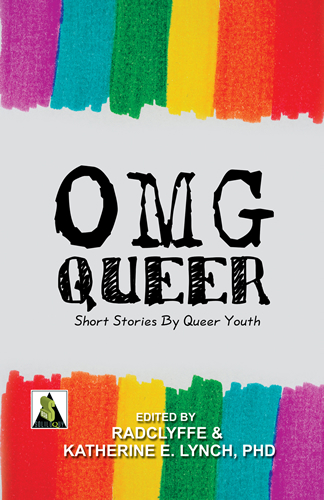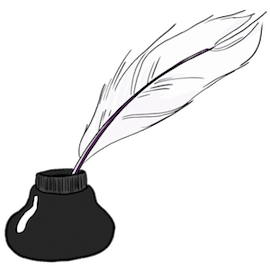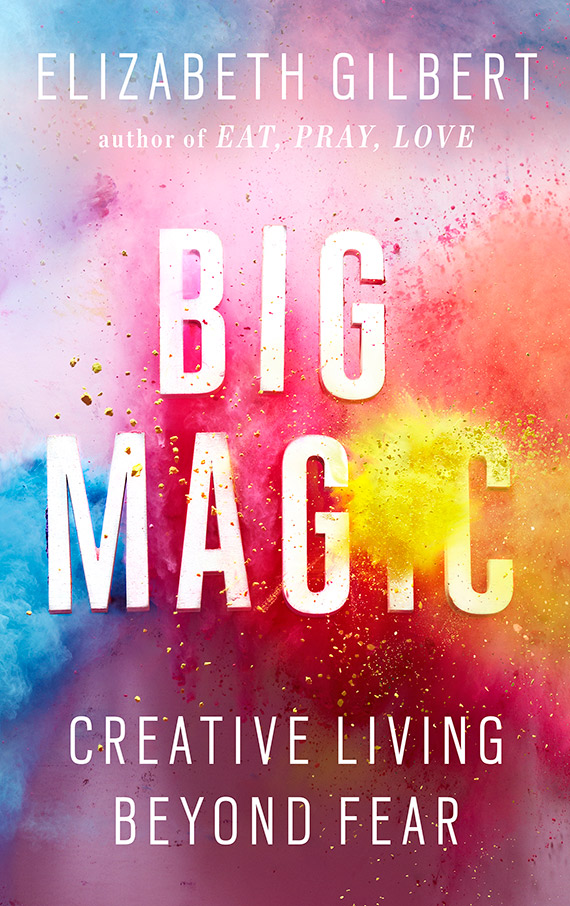
|
The kind people at Publishers Group UK sent me a copy of OMG Queer to read, then review and I’m so glad they did as once I started reading I found it difficult to put down.
OMG Queer is an anthology of short fiction stories written by queer (gay, lesbian, bisexual, trans, questioning and intersex) young people. Stories are the oldest form of communication to share hopes, fears, dreams, fantasies and these stories share all of these and so much more.
I’d like to tell you a little about each story as the cover of the book doesn’t do justice to the stories contained within.
|
Jelson by Brenna Harvey
Jelson made me rethink the whole gender identity issue. Jelson is intersex character who fluctuates between being a boy and a girl. It’s cleverly written switching between he and she as Jelson changes gender. It is revealed that he doesn’t want to be a boy or girl but exist in that space in-between, a space that up until this story I didn’t even realise existed. This story reminded me that often we don’t know what other people think about themselves or what they think of ourselves. A fantastic start to the book.
The Tea Bowl by Justine F. Lane
A beautifully written story about unrequited love. A lesbian English Tutor teaching in Japan falls in love with a soon-to-graduate student.
The Piano Player by Thomas Graziano
The story starts with Will at his grandma’s funeral. In the corner he notices an attractive piano player who plays his grandma’s favourite song. He thinks nothing more of it until a few weeks later on college campus he hears someone playing the piano. Will is a romantic gay man whose never been kissed. Will realises the guy playing the piano on campus is the same guy who played at his grandma’s funeral: Wesley.
I smiled reading that Will had made a pact with his straight female friend to marry each other if neither of them had met Mr. Right by the age of forty; as it’s something I think most gay men have done – I certainly have. I smiled again when Will checks social networking sites to try and work out Wesley’s gay or not. Something I’ll admit to doing.
Will gets his kiss and Wesley appreciates his love of his piano playing. This story is written in pieces that are brilliantly intertwined together. The story pulled out my romantic side that we all have. After reading this story I felt inexplicably happy; when I thought about why I discovered that this story had filled my heart with hope of meeting Mr. Right one day.
Crystal Crisis by A.J. Slater
Ryan is the only out lesbian girl in a homophobic school. Nobody talks to her apart from popular Crystal who shares one class with her. They bonded over Crystal having a regular ‘crisis,’ she never has a pen to do her homework with and always asking Ryan if she can borrow one. This story flips between the past – their last day at school; and the present – Ryan coming back to the small town to visit with her girlfriend.
In the past Ryan describes borrowing Crystal a pen and talking to her before some of the other students start name-calling Ryan. Crystal stands up for Ryan, and it quickly escalates into the other students viciously attacking Ryan and Crystal. By the end of the assault Ryan has stopped breathing and Crystal has to do CPR in order to save her life. Afterwards in front of the Head Teacher Ryan remains silent out of fear, something she’s never been able to forgive herself for. The Head Teacher decides that Ryan and Crystal have enough credits to graduate early, seemingly wanting to sweep the whole issue under the metaphorical carpet. They both declare their love for one another and leave school on that day. Ryan going off to study filmmaking and Crystal going off traveling in Europe.
In the present Ryan bumps into Crystal in the pharmacy when she see’s a woman rummaging in her bag for a pen. Ryan offers her a pen and they speak. Crystal is now a School Counsellor so that no one will ever have to experience what they did and she’s followed Ryan’s successful career as a filmmaker. Ryan apologies for her silence after the attack and Crystal explains that she was never angry and understood why she was silent. Then they are met by their respective female partners and the four of them walk off together. As they walk off Ryan and Crystal are talking about redeveloping their friendship but encompassing their new partners as well. Ryan finally forgives herself for her silence following the homophobic attack, after holding on to guilt for so many years.
A Tale of Modern Magic by Olivia Dziwak
This is a reflective story about a Polish lesbian who volunteers for her schools Gay Straight Alliance (GSA) in Canada. One night while volunteering at a World AID’s Day Event she meets Jane a pretty girl who also volunteers for the GSA and they decide to date. What makes the story truly remarkable is the description of what the Polish girl feels about the other and how she feels about the prospect of dating her. I found this story to be incredibly emotionally touching.
Indulge Me by Ashley Bartlett
An overly confident, borderline arrogant twenty year old Bartender is the main character in this story that is essentially about the chase. The Bartender see’s an older woman and the chase commences, the older woman playing hard to get. Eventually as expected the bartender gets her prey and they have a night of passion.
After this night the Bartender doesn’t see the older women for a while and the reader begins to question which of them was really the prey? When they finally do catch up the Bartender reflects realising that all she wanted to do was flirt with an attractive woman, she wasn’t ready for more. The outwardly confident Bartender transforms into someone whose more real, a woman who has insecurities just like everyone else.
Ignite the Sky by Julie R. Sanchez
Grace is on her knees picking up some chewing gum in her local shop when she meets Callie. Grace feels a presence above her slowly looking up taking in gorgeous Callie in front of her. Callie introduces herself and a friendship develops between them. Callie wants to feel alive and Grace comes to understand the importance of this through her adventures with Callie. Written in a diary style by Grace, it is discovered that Callie is bisexual. Callie likes girls and boys but it is about the person, they both talk about how they feel and the story ends with them admitting they both love one another.
A Round Trip by Warren Smith III
This is my favourite story in OMG Queer. Writer Ethan is on train the train to the city for work when he see’s a sign that reads Follow Your Passion. Ethan thinks to himself if only it was that easy. Then Zack sits opposite him and they quickly get talking, they even share one of those comfortable silences that usually only people who know each other well share.
Ethan doesn’t need to take the train the next day as he’s off work, but he can’t stop thinking about Zack so makes an excuse to himself for his need to take the train to the city again. This reminded me of the excitement of meeting someone new unexpectedly, which hasn’t happened to me in a long time. Zack gets on the train and sits opposite him. Zack invites Ethan to the city, as if he’s a visitor that’s never been. Ethan accepts and plays along pretending to fascinated by everything Zack’s points out.
They have a genuinely fantastic time together, exploring the city, shopping, then on to a Night Club with Ethan realising that Zak is his passion. The brilliance of this story is in the expression of how Ethan feels which is portrayed through the writing. Warren Smith III, should be really proud of this impressive piece of literature he’s created. After the story I was inexplicably happy. I was fizzling with excitement for Ethan, yet at the same time had a longing for a similar experience.
Butch Fatale by Kirsty Logan
Butch Fatale is a story essentially about friendship. The underlying message in the story appears to be that friendship and a relationship are both important. Keep both your friends and your lover close to you always.
Pool of Sorrow by Sam Sommer
It’s the Summer of ’62 and twelve year old A.J. is alone – all of his friend have gone away for the summer. Teddy is fourteen years old and one of the “big kids.” Usually A.J. and Teddy wouldn’t interact, but with everyone away they begin to and a friendship develops.
One day as routine A.J. goes to look for Teddy but he can’t find him until he hears someone sobbing and crying in Teddy’s shed. It’s Teddy and he explains that his dad used to help him set up the pool every summer before he died. Teddy asks A.J not to tell anyone that he was upset and asks A.J. to help him set up the pool, which they do together. Then Teddy suggest playing “the game.” Teddy throws a pirate key into the pool right in front of A.J, dives under to get it and rises so that they are touching torso’s.
“The game” progresses to Teddy’s bedroom were they have their first sexual exploratory experience together. The story is well written with the right level of sexual intimacy for the ages of the main characters. I related to the story as I had a similar sexual exploratory experience as a teen; and I can imagine many other people would relate to the story for the same reason.
My Lips by Joseph Aviv
My Lips is a descriptive story about growing up, starting at two years old up to the age of nineteen. It uses the main characters lips, events and the relationship with family members to describe what it’s like growing up gay. The main character as a child moves his lips often, but when he starts to realise he’s gay he becomes silent. He uses silence as his protection. He’s very family orientated and when he comes out as gay to his family, they accept him. Slowly his lips start to move again as his finds his voice once again.
Fighting for Lies by Aimee Lukes
Billie and Alaina are good friends. Billie likes Alaina and one evening they kiss. Alaina shares her internalised homophobia expressing that what they have done is “wrong” and that it’s symptom of a “sickness.” Alaina has also heard whispers that homosexuality is normal. This story switches perspectives between the two main characters, ending with Billie explaining to Alaina that she has tried to make everyone else happy and that all it has done is make her miserable. This story was the only one in OMG Queer that felt as if it had been cut short.
There Was a Knocking on the Door by Andrew Arslan
There Was a Knocking on the Door is set in New York and is a coming out story. A son tells his Muslim father he’s gay to his fathers reaction “I can’t believe this.” His father had always preached about treating everyone fairly and he can’t believe his fathers reaction to him sharing his sexuality. He goes to his room burring his face in his pillow, regretting coming out.
Then he hears his mother shouting at his father in the bathroom. He goes to see what’s going on only to discover that his father was about to take an overdose of medication when his mother walked in on him. His mother instructs him to go back to his room, which he does. Then the story ends with a knocking on his bedroom door from his father. The traumatic story appeared to end on a low, with the reader hoping the main character and his father can reconnect on common ground.
My Aahana by Ariana Montoya
Jo attends a all-girl boarding school and isn’t happy that she’s going to have to share her room with a new student. Jo also worries that her secret, the fact she likes women maybe exposed. But then the new student Aahana arrives. Jo is instantly captivated by this beautiful Indian girl and a friendship starts to develop between them.
One day Aahana receives a call from her father. He tells Aahana that she must go home to India and marry the son of her grandma’s friend or her father won’t receive the inheritance that he needs. Jo is crushed. Despite Aahana not returning Jo’s feelings in the way she would like, she doesn’t want to loose this amazing woman. As Jo says goodbye to Aahana at the airport she thinks about telling her how she feels, but decides against it as it would change nothing. Jo and Aahana make eye contact and Jo senses that Aahana always knew how she felt about her.
First Time by Archer Darke
First time is about lesbian couple Grace and Hayden’s first time having sex. It is a very graphic, which I found too much for me as a gay man.
Hella Nervous by Rebekah Weatherspoon
Tracy is a sporty, confident and butch girl who is attracted to Oksana a shy, quiet and reserved girl. Tracy can’t stop ogling Oksana and eventually invites her back to hers after school. Tracy is thrilled when Oksana accepts and once at home makes her intentions clear. They begin to hook-up with Tracy a confident lover and Oksana being slightly awkward. As the hook-up relationship develops they learn more about each other.
One day after hooking-up Oksana asks what Tracy wants. Oksana asks if Tracy wants more than “fooling around.” Tracy had never considered what she wants but realises that she really likes Oksana and wants to be her girlfriend. They agree to date and the story ends wonderfully with Oksana coming out at school as Tracy girlfriend. There are a few shocked class-mates but you get the idea that with Tracy around Oksana will be OK.
Chili Powder by Anna Meadows
A bisexual girl moves to a new town and a new school. This foreign girl struggles to adapt to this new school and make friends. So she sits alone in the shade of a tree to eat her dinner. Everyday she has an orange that she sprinkles Chili Powder on to add to the taste of the otherwise bland fruit.
One day while sitting under the tree a boy with no Adams apple, small hands and feet sits down beside her. This use of language implies that this boy is trans although it never states it. Initially she’s shocked but they begin to speak and one day she kisses him hoping he’ll want more in the future.
Graduation by Brighton Bennett
It’s the last night before Graduation at University for Rachel, Emmerson and their year group. As Freshers they’d got into a relationship together, but it didn’t work out. They reflect on their relationship and feelings for one another at a party, before deciding to go back to Emmerson’s for one last night of loving intimacy before going on to lead separate lives. This story is the perfect end to OMG Queer as is about marking the end of something but looking forward to what will come next.
Considering OMG Queer as a whole, the use of first person in the majority of the stories made them feel very personal and at times intimate. All but one of the stories felt the perfect length and covered a wide range of themes that queer people will relate with. I did notice that the majority of the contributors wrote lesbian stories. This caused me to ask myself Where are the gay youth writers? Perhaps when my writing develops some more along with my writers voice, I might try to write some fictional short stories with a gay theme.
I enjoyed reading OMG Queer so much that it has earned a place on my bookshelf of favourite books; the books on this self have effected me emotionally, influenced who I am and are books that I’ll read again and again. OMG Queer is simply a must read for any queer person.
I could only find the e-book of OMG Queer on Amazon which was disappointing as I prefer real books. So if you want the e-book click any link on this review, or if you prefer a paperback copy you can order it on Waterstones.
Review soon,
Antony






